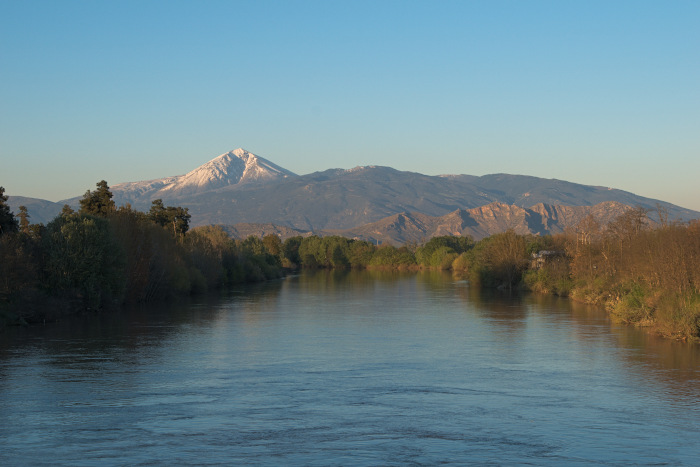The prefecture of Larissa was a center of human activity with a continuous presence even during the last glacial period. From the Lower Paleolithic Age (400,000-200,000 years before today) to the Neolithic Age (7,000 BC) findings testify to the presence of these distant ancestors. The first ancestors are the Pelasgians, who cultivated the rich plain of Pinios to plant their first crops six or seven thousand years ago. The now clear lands were called Argi - Pelasgian Argos was the first name of Thessaly - and near them they built their Cyclopean citadels and called them Larisses, from Laas which means Rock - from where the People - in the now forgotten and their distant language.
In Olympus will live the gods of antiquity who, based on the mythological narratives, will accompany the people in their effort to build the ancient civilization. With the arrival of the Thessalians (1,200 BC) and their rule over the old inhabitants of the region, the brilliant pages of history and culture will begin to be written. The organization of the Thessalian commonwealth, the famous "Commonwealth of Thettals" and the formation of a strong political and economic force will bring forth a series of prosperous cities with Larissa as their capital.
An area so rich in products and natural advantages will not leave indifferent the neighboring Macedonians who conquered it in 354 BC. nor the Romans who prevailed from the 2nd BC. until the 4th AD ah..
During the Byzantine years, the area of Larissa received several barbarian raids, while in 1423 it finally fell into the hands of the Ottomans. Great scientists and teachers emerged in the region, known and sought after even in Europe (D. Govdelas, K. Koumas, I. Pezaros, I. Leonardos, Oikonomou ex Oikonomon, etc.). The prefecture was partially liberated in 1881 while the area of Elassona with the war of 1912-13.
The mythical Philoctetes, who contributed to the conquest of Troy with the medicated arrows of Hercules, is the best-known king of ancient Meliboia. During his days a powerful kingdom flourished, one of the largest and most powerful in ancient Greece. His name continues to be mentioned throughout the ages. As the remnants of the ancient civilization in the region continue to be commemorated. Melivoia is a historical place, a place blessed by God and glorified by people.
Editor: Fotini Anastasopoulou
Farsala
Ancient Pharsala extended on the northern slope and the foothills of the Prophet Ilias hill, in a strategically important geographical position, through which road axes connecting the north with the south of Greece passed. Today, most of it is covered by the modern city. The fertile plain that stretches out in front of it and which is crossed by the rivers Enipea and Apidanos, the main source of the latter gushing up until a few years ago at the foot of the hill of Agia Paraskevi, was in ancient times, as it is today, a source of economic prosperity.
Sources:
Municipality of Farsala
www.farsala.gr
Chamber of Larissa
www.larissa-chamber.gr
